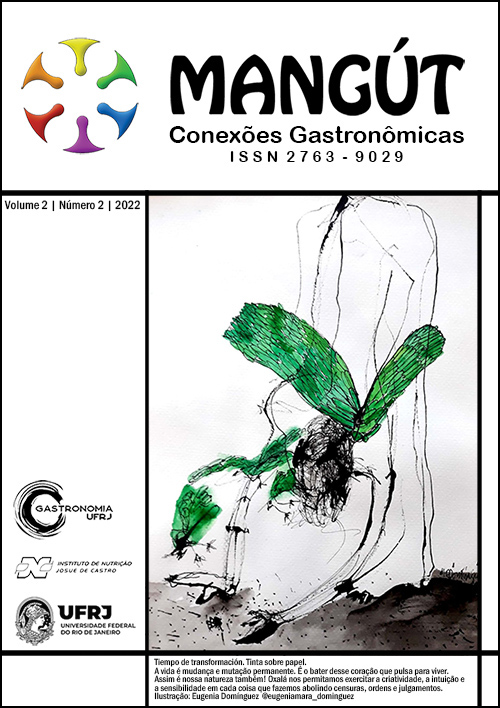Kitchen in pandemic times: analysis of the experience in practical demonstrative classes at the Technical Course in Gastronomy at Instituto Federal do Maranhão, Campus São Luís Maracanã
DOI:
https://doi.org/10.70051/mangt.v2i2.52604Keywords:
Gastronomy, Demonstrative expository practical class, Technical Course, Kitchen,Abstract
This research was driven by the crisis resulting from the pandemic associated with Covid 19. With the impossibility of holding practical classes in the laboratories, it was necessary to reflect on strategies and methodologies that could contribute to the succession of teaching and the understanding of the linked processes to praxis. Thus, this research aimed to analyze the experience of demonstrative expository practical classes applied to students of the Technical Course in Kitchen at the Federal Institute of Maranhão, Campus São Luís Maracanã, in order to identify the extent to which this methodology was assimilated in a way to enable the students to be able to reproduce the recipes in their homes. The study revealed that this dynamic, even though it faced obstacles, encouraged self-confidence and creativity among students. In addition, it was considered quite understandable and satisfactory. On the other hand, we cannot forget the adversities associated largely with financial problems and the difficulty in having access to the internet.
Downloads
Published
Issue
Section
License
Copyright (c) 2023 Giselle Melo Schmid, Alice Vasconcelos Melo, Taisa Lisboa Montagner

This work is licensed under a Creative Commons Attribution 4.0 International License.
Autores que publicam nesta revista concordam com os seguintes termos:
- Autores mantém os direitos autorais e concedem à revista o direito de primeira publicação, com o trabalho simultaneamente licenciado sob a Licença Creative Commons Attribution que permite o compartilhamento do trabalho com reconhecimento da autoria e publicação inicial nesta revista.
- Autores têm autorização para assumir contratos adicionais separadamente, para distribuição não-exclusiva da versão do trabalho publicada nesta revista (ex.: publicar em repositório institucional ou como capítulo de livro), com reconhecimento de autoria e publicação inicial nesta revista.
- Autores têm permissão e são estimulados a publicar e distribuir seu trabalho online (ex.: em repositórios institucionais ou na sua página pessoal) a qualquer ponto antes ou durante o processo editorial, já que isso pode gerar alterações produtivas, bem como aumentar o impacto e a citação do trabalho publicado (Veja O Efeito do Acesso Livre).



